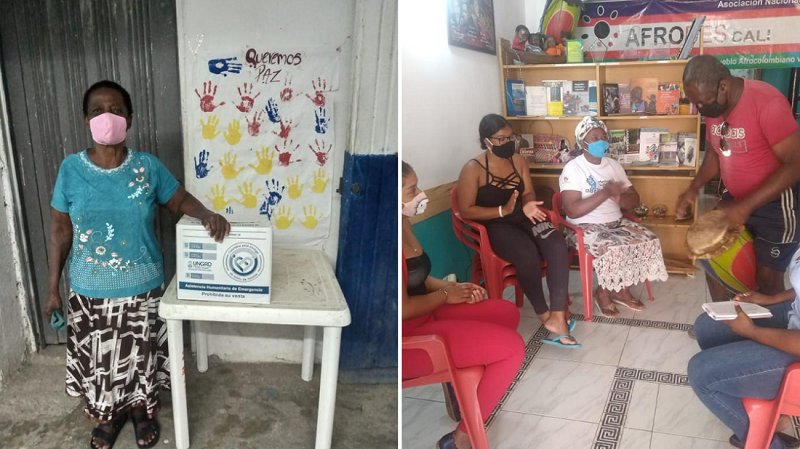Race and Equality publishes eight recommendations to protect the Afro-descendant population in Latin America from COVID-19
Washington D.C. August 6, 2020.– As the COVID-19 pandemic continues to reverberate across Latin America, the International Institute on Race, Equality and Human Rights (Race and Equality) set out to […]

Washington D.C. August 6, 2020.– As the COVID-19 pandemic continues to reverberate across Latin America, the International Institute on Race, Equality and Human Rights (Race and Equality) set out to analyze the impact of the pandemic on the region’s Afro-descendant population. Based on the results, the organization has formulated eight recommendations for States, human rights institutions, and international bodies to develop pandemic responses that are in line with Afro-descendants’ needs.
Race and Equality conducted this research through several webinars, virtual meetings, and dialogues with Afro-descendant leaders between March 27 and May 17, 2020. Public statements from Afro-descendant civil society in the region and declarations from anti-racial discrimination mechanisms within the Organization of American States (OAS) and United Nations systems were also consulted.
According to data from the UN Economic Commission for Latin America and the Caribbean (ECLAC), the Afro-descendant population in the region totals 130 million people, representing approximately 21% of the region’s population. So far, no entity has published official data on how many Afro-descendants how been infected with, or died from, COVID-19. Civil society organizations, however, have conducted their own studies and revealed high levels of vulnerability and inequality affecting the Afro-descendant population.
A lack of vital health information, difficulties in accessing national health systems, and acts of violence by both police and illegal armed groups are all major obstacles to Afro-descendant communities as they face the pandemic. “We thought it was critical to understand Afro-descendants’ situation in the pandemic because from there, we can decide on actions to support our counterparts. We can also make better recommendations to States, human rights bodies, and international organizations about how to guarantee their rights,” said Elvia Duque, Race and Equality’s Legal Program Officer and the leader of the study.
Race and Equality developed eight recommendations for combatting structural racism and racial discrimination; improving health and education systems, especially with regards to gaps between urban and rural communities; guaranteeing human rights; and gathering trustworthy statistics to study the pandemic through an intersectional lens. The recommendations emphasize the need to implement these recommendations through consultation and coordination with Afro-descendent leaders.
Readers can find the results of the study and consult the recommendations here.

